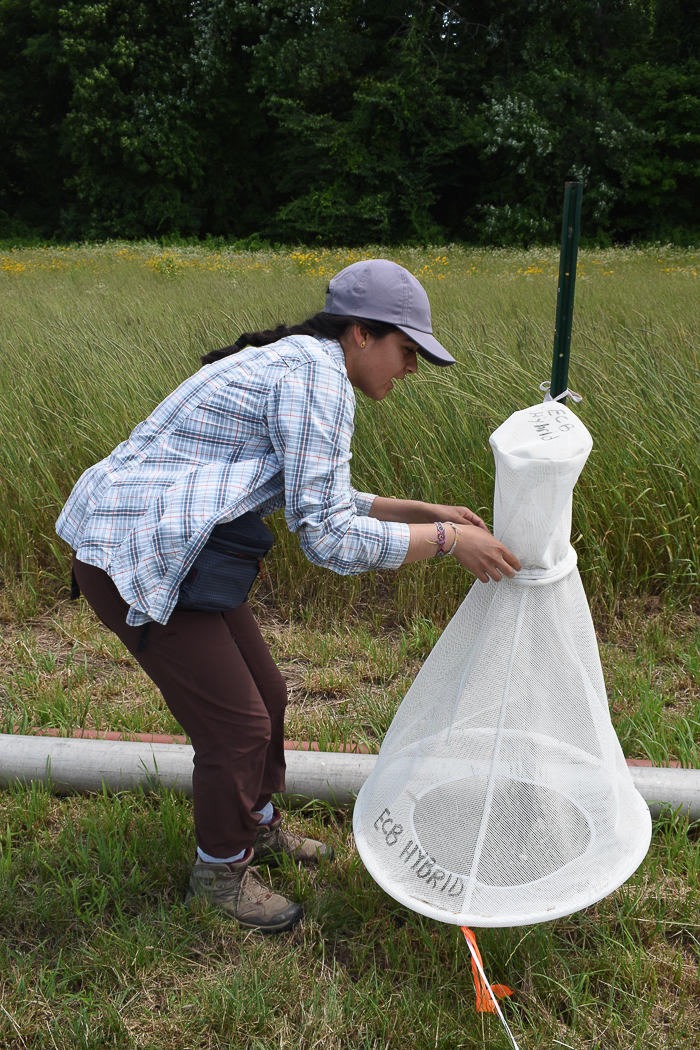Mild winters aren’t a problem for everyone. If you’re a corn earworm, they are great. You get to safely hibernate and dream of the havoc you’ll wreak in the spring instead of your usual habit of freezing to death.
Jacob Dayton, a doctoral candidate at Tufts University who is studying the effects of climate change on insects, said it’s hard to predict how every species of bug will adapt to global warming, but “it’s a safe bet that today’s pest landscape is going to look completely different.”
Take that corn earworm. Thirty years ago, when Abby Seaman started working in pest management, it didn’t survive Hudson Valley winters. The bug would arrive in the summer, swept north from warmer climates by storms from the south.
“We didn’t have to think about it until late in the season,” said Seaman, who works for the state’s Integrated Pest Management program at Cornell. But now there are some areas where the program’s network of observers are seeing the earworm earlier in the season, which means it survived the winter.

One member of the network is ecologist Teresa Dorado at the Hudson Valley Farm Hub, just west of Kingston. Throughout the growing season, Dorado checks pheromone traps for corn earworm, European corn borer and other unwelcome guests.
Meanwhile, Seaman spends the winter checking temperatures to see if corn flea beetles will be a problem in the spring. Warmer winters mean more survivors, and the beetles spread a pathogen known as Stewart’s wilt that can kill seedlings and cause stalks to rot.
Because of the warmer temperatures and longer growing seasons, the pests can breed through more generations, attacking the corn at every stage in their life cycle: burrowing into the kernels, through the stems, attacking the silky tassel and upsetting farm customers who see the caterpillars crawling on the ears.
When he visits the Farm Hub, Dayton takes genetic samples of the corn borers. He hopes to figure out how the milder winters, earlier springs and longer falls are affecting the generations as they hatch through the season.
Corn borers and earworms survive cold weather by entering diapause, which is a form of hibernation. Bugs prepare by eating as much as they can in the fall. With the warmer, longer autumns, the bug’s metabolism goes into overdrive, and it requires even more energy on top of the amount it’s storing for the winter, Dayton said. This could lead to a compounding problem in which there are not only more pests throughout the year because of overwintering and multiple generations, but hungrier ones, as well.
One way to stop the corn borer without spraying is to call in air support: Trichogrammas, a species of parasitoid wasps. At the Farm Hub, Dorado deposits their eggs anytime she sees corn borer eggs. The wasps hatch first, then lay new eggs inside the corn borer eggs, which become the newborn’s food supply.
There are other control methods, but Dayton said that one of the most successful is probably too expensive for smaller farms: A genetically modified corn known as Bt produces a toxin that kills corn borers.
“The proteins shred the inner lining of their gut,” explained Dayton. “In humans it doesn’t have the same effect because our stomach acids degrade the proteins.”
It’s an option for larger farms that plant only corn but harder to afford for smaller farms that plant a variety of crops, he said. “If you can meet the economic thresholds at a small operation through other management practices, it might make sense,” he said.

